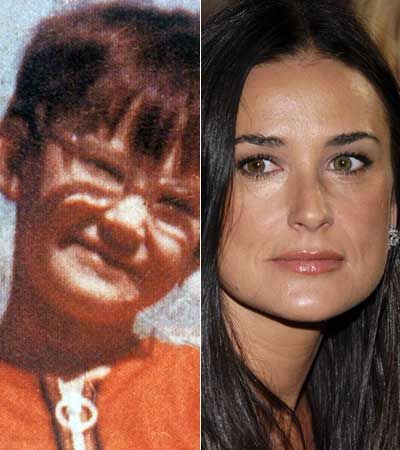Following on from yesterday’s rant about cosmetic surgery (there’s a good reason why it’s also called plastic), I was disturbed yet not surprised to read an interview with the newly separated Mrs Ashton Kutcher, aka Demi Moore, in which she was quoted as saying: “What scares me is that I’m going to ultimately find out at the end of my life that I’m really not lovable, that I’m not worthy of being loved. That there’s something fundamentally wrong with me.”
I wanted to scream when I read this. Why is it so many women think that there’s something wrong with them when a relationship ends?
However beautiful, however much money a woman earns, however successful in her field, and in Demi’s case, however much money she spends on maintaining her body, it seems she is still prey to the same crippling limiting self-beliefs as the rest of us.
I hold my hands up here – for many years I thought I was at fault every time a relationship went wrong. I genuinely believed there was something wrong with me. This sophisticated form of self-sabotage, fuelled by a terror of intimacy and fear of abandonment, scuppered my chances of a genuine, loving relationship for years. Until I was 50, in fact, when I magically let go of all the mental crap I had allowed myself to accumulate.
Let’s dismantle these toxic thought forms. There is nothing wrong with you. You are perfect as you are. You are worthy of love. In fact, in essence, you ARE love.
But back to Demi. I didn’t have to look very far for evidence of her self-loathing. She uses a photo of herself as an goofy, bespectacled child on her Twitter page. That speaks volumes to me.
It doesn’t take a psychiatrist to work out that she has a wounded inner child, crying out for love. Here’s an extract from her Wikipedia biography: “As a child, Demi had a difficult and unstable home life. Her biological father left her mother after a two-month marriage, before Moore was born. As a result, Moore had the surname of her stepfather, Danny Guynes, on her birth certificate.
“Danny Guynes frequently changed jobs; as a result, the family moved a total of 40 times. Her parents were alcoholics who often fought each other. Moore was cross-eyed as a child and wore an eye patch in an attempt to correct the problem until it was ultimately corrected by two surgeries. She also suffered from kidney dysfunction.”
All her life she’s been trying to escape that childhood and has reinvented herself physically to distance herself from that cross-eyed child. Yet there she is, staring out from Demi’s Twitter feed, that poor, neglected little girl who believed there was something wrong with her and whose body seemed to be her enemy.
I truly hope Demi, and other women like her, find peace. In the interview, she says: “Somebody wrote something to me that said, ‘Don’t let your wounds make you become someone you’re not’. That’s really powerful. And not taking life too seriously.”
That’s a good start. I would add the words of her friend Oprah – turn your wounds into wisdom.

Leave a Reply